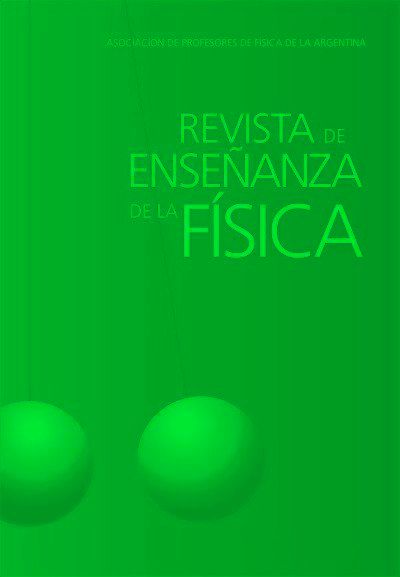An experimental didactic proposal applied to the Electricity unit in a scientific high school in Costa Rica
DOI:
https://doi.org/10.55767/2451.6007.v33.n2.35175Keywords:
Pandemic, Electricity, Virtual and remote laboratories, Physics teachingAbstract
This article presents the results obtained when applying the design of an experimental didactic proposal to the Electricity unit study in
a Costa Rican scientific high school. Quantitative research was conducted with a quasi-experimental design using a conceptual test
adapted from the American Association of Teachers of Applied Physics as a pre-test and post-test to measure the Hake Conceptual
Gain Model, the Bao and Redish Concentration Factor, and a hypothesis test using the Student's T-Test. The results obtained through
this design brought about noteworthy and significant changes in the teaching-learning process of this educational system and will serve
as vital input for the Diversified Education at a national level at the same time. Finally, it is also expected that this study will give rise to
other educational purposes in other areas of knowledge.
References
American Association of Physics Teachers, A. (2020). PhysPort. https://www.physport.org/assessments/
Arias Navarro, E., & Arguedas Matarrita, C. (2018). Strengthening the teaching of physics at a Costa Rican Scientific College through the use of the VISIR Remote Laboratory. Revista Virtualidad Educación y Ciencia, 9(16), 131–141. https://revistas.unc.edu.ar/index.php/vesc/editor/submission/20478
Bao, L., & Redish, E. F. (2001). Concentration analysis: A quantitative assessment of student states. American Journal of Physics, 69(S1), S45–S53. https://doi.org/10.1119/1.1371253
Becerra, D. (2018). Uso de simulaciones en la enseñanza de conceptos generales de electricidad y magnetismo en estudiantes de ingeniería [Tesis de doctorado] Instituto Politécnico Nacional]. https://www.fised-cicata.com/tesisdoctorado.html
Buendía Eisman, L., Colás Bravo, P., & Fuensanta Hernández, P. (1998). Métodos de Investigación en Psicopedagogía. McGraw-Hill Interamericana.
Dellwo, D. R. (2010). Course assessment using multi-stage pre/post testing and the components of normalized change. Journal of the Scholarship of Teaching and Learning, 10(1), 55–67. citeulike-article-id:13170704%5Cnhttp://josotl.indiana.edu/article/viewFile/1732/1730
Garcia-Zubia, J., Cuadros, J., Hernandez-Jayo, U., Romero, S., Serrano, V., Angulo, I., Alves, G., Fidalgo, A., Orduña, P., & Rodríguez-Gil, L. (2020). Using VISIR Remote Lab in the Classroom: Case of Study of the University of Deusto 2009–2019. Advances in Intelligent Systems and Computing, 1231 AISC, 82–102. https://doi.org/https://doi.org/10.1007/978-3-030-52575-0_7
Gobierno de Costa Rica. (2020). Gobierno declara estado de emergencia nacional, impide llegada de extranjeros y se suspende lecciones en todos los centros educativos del país.
Hake, R. R. (1998). Interactive-engagement versus traditional methods: A six-thousand-student survey of mechanics test data for introductory physics courses. American Journal of Physics, 66(1), 64–74. https://doi.org/10.1119/1.18809
Kane, S. N., Mishra, A., & Dutta, A. K. (2016). Implementation of an active instructional design for teaching the concepts of current, voltage and resistance. Journal of Physics: Conference Series, 755(1). https://doi.org/10.1088/1742-6596/755/1/011001
Ministerio de Educación Pública. (2017). Programa de Estudio de Física Educación Diversificada.
Ministerio de Educación Pública. (2020). MEP anuncia postergación de clases presenciales y fortalecimiento de la educación a distancia. https://www.mep.go.cr/noticias/mep-anuncia-postergacion-clases-presenciales-fortalecimiento-educacion-distancia
Programa Estado de la Nación. (2011). Capítulo 3. Desempeño de la Educación General Básica y el Ciclo Diversificado. III Informe Del Estado de La Educación, 115–176.
Programa Estado de la Nación. (2013). Capítulo 3. Desempeño de la Educación General Básica y el Ciclo Diversificado. IV Informe de Estado de La Educación, 135–195.
Rosado, L., & Herreros, J. (2005). Nuevas aportaciones didácticas de los laboratorios virtuales y remotos en la enseñanza de la Física. Recent Research Developments in Learning …, 1–5. http://www.uv.es/eees/archivo/286.pdf
Downloads
Published
Issue
Section
License
Copyright (c) 2021 Eduardo Arias

This work is licensed under a Creative Commons Attribution-NonCommercial-NoDerivatives 4.0 International License.
Aquellos autores/as que tengan publicaciones con esta revista, aceptan los términos siguientes:Los autores/as conservarán sus derechos de copiar y redistribuir el material, bajo los términos estipulados en la Licencia de reconocimiento, no comercial, sin obras derivadas de Creative Commons que permite a terceros compartir la obra bajo las siguientes condiciones:
- Reconocimiento — Debe reconocer adecuadamente la autoría, proporcionar un enlace a la licencia e indicar si se han realizado cambios. Puede hacerlo de cualquier manera razonable, pero no de una manera que sugiera que tiene el apoyo del licenciador o lo recibe por el uso que hace.
- NoComercial — No puede utilizar el material para una finalidad comercial.
- SinObraDerivada — Si remezcla, transforma o crea a partir del material, no puede difundir el material modificado.
- Los autores/as podrán adoptar otros acuerdos de licencia no exclusiva de distribución de la versión de la obra publicada (p. ej.: depositarla en un archivo telemático institucional o publicarla en un volumen monográfico) siempre que se indique la publicación inicial en esta revista.
- Se permite y recomienda a los autores/as difundir su obra a través de Internet (p. ej.: en archivos telemáticos institucionales o en su página web) antes y durante el proceso de envío, lo cual puede producir intercambios interesantes y aumentar las citas de la obra publicada. (Véase El efecto del acceso abierto).










